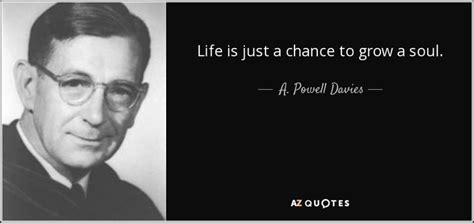A Quote by Jean de la Bruyere
False greatness is unsociable and remote: conscious of its own frailty, it hides, or at least averts its face, and reveals itself only enough to create an illusion and not be recognized as the meanness that it really is. True greatness is free, kind, familiar and popular; it lets itself be touched and handled, it loses nothing by being seen at close quarters; the better one knows it, the more one admires it.
Related Quotes
You have seen that the universe is at root a magical illusion and a fabulous game, and that there is no separate "you" to get something out of it, as if life were a bank to be robbed. The only real "you" is the one that comes and goes, manifests and withdraws itself eternally in and as every conscious being. For "you" is the universe looking at itself from billions of points of view, points that come and go so that the vision is forever new.
You and I, we must carry on, Gemma. I cannot afford the luxury of love. I must marry well. And now I must look after you. It is my duty." "If you wish to suffer, you do so of your own free will, not on my behalf. Or Father's or Grandmama's or anyone's. You are a fine physician, Thomas. Why is that not enough?" "Because it isn't," he says with a rare candor. "Only this and the hope of nothing more? A quiet respectability with no true greatness or heroism in it, with only my reputation to recommend me. So you see, Gemma, you are not the only one who cannot rule her own life.
Man is so great that his greatness appears even in the consciousness of his misery. A tree does not know itself to be miserable. It is true that it is misery indeed to know one's self to be miserable; but then it is greatness also. In this way, all man's miseries go to prove his greatness. They are the miseries of a mighty potentate, of a dethroned monarch.
It goes without saying that only inner greatness possess a true value ("une valeur véritable,", Fr.) . Any attempt to rise up (or at rising up, - "s'élever", Fr.) outwardly above others, or to want (or wish) to impose one's superiority, denote a lack of moral greatness, since we do not try to replace ("suppléer", Fr.) in that way (.... in French "par là", Fr.) to what, if we did really possess it, would have no need whatsoever to flaunt itself.





































